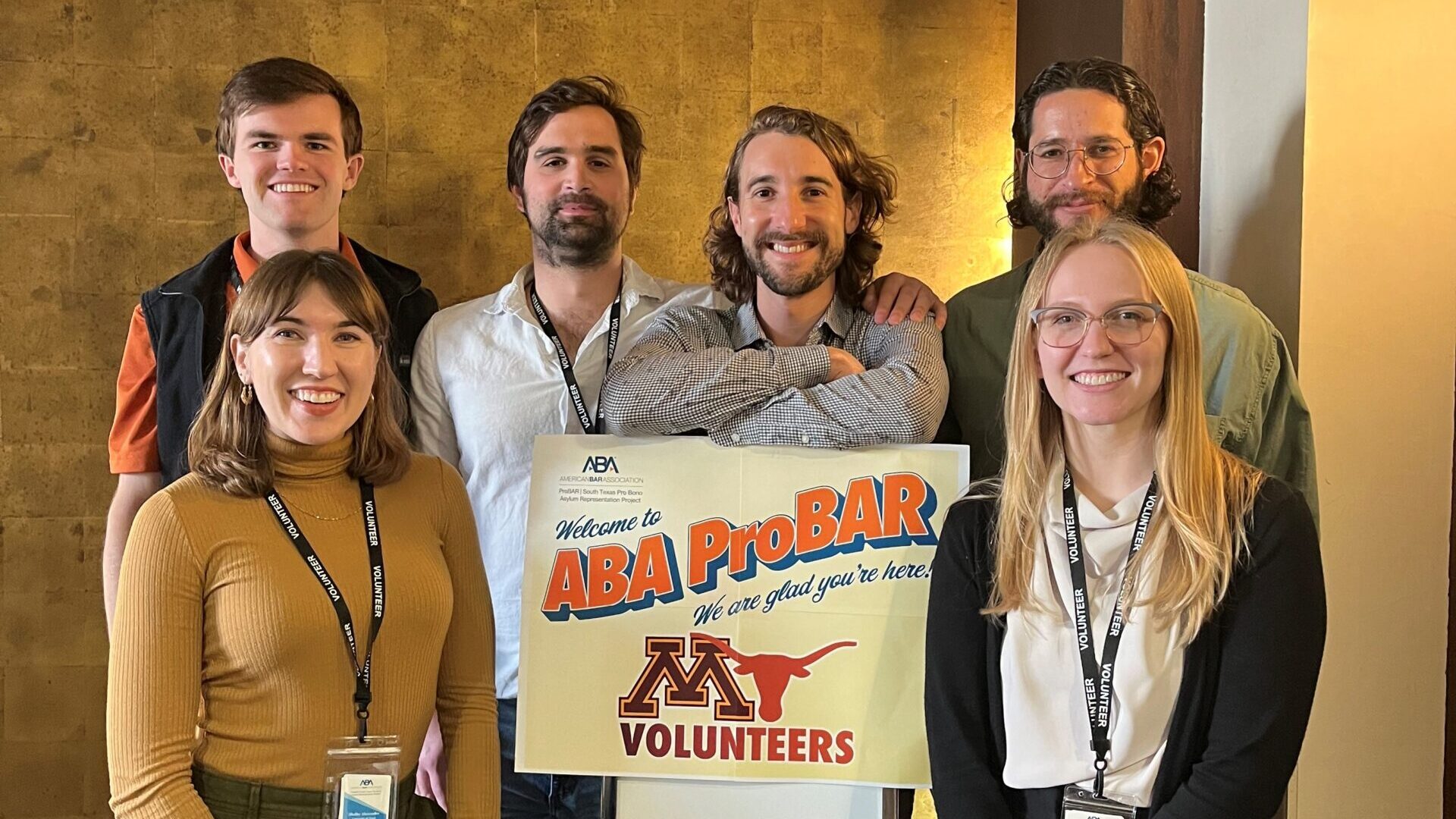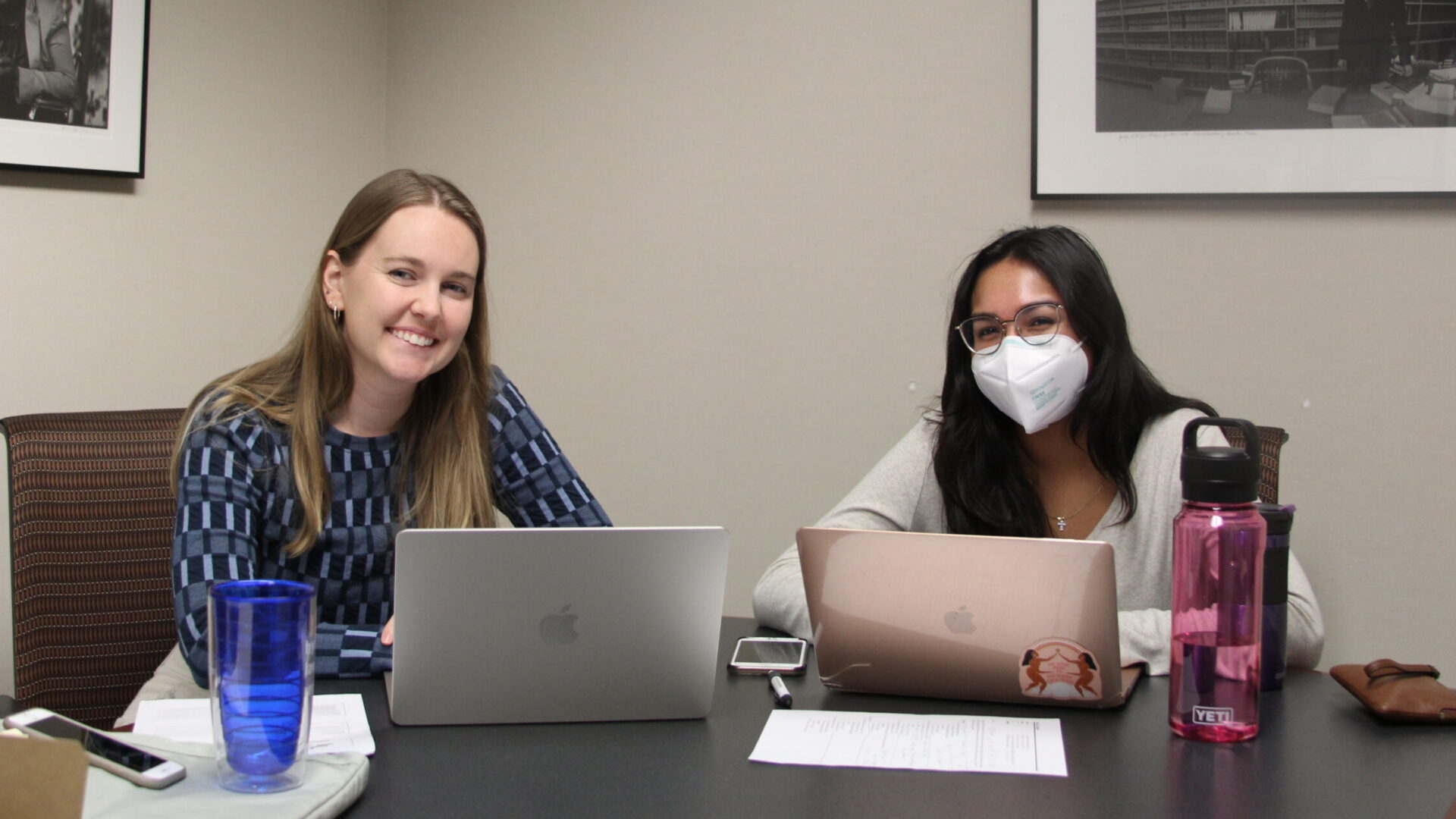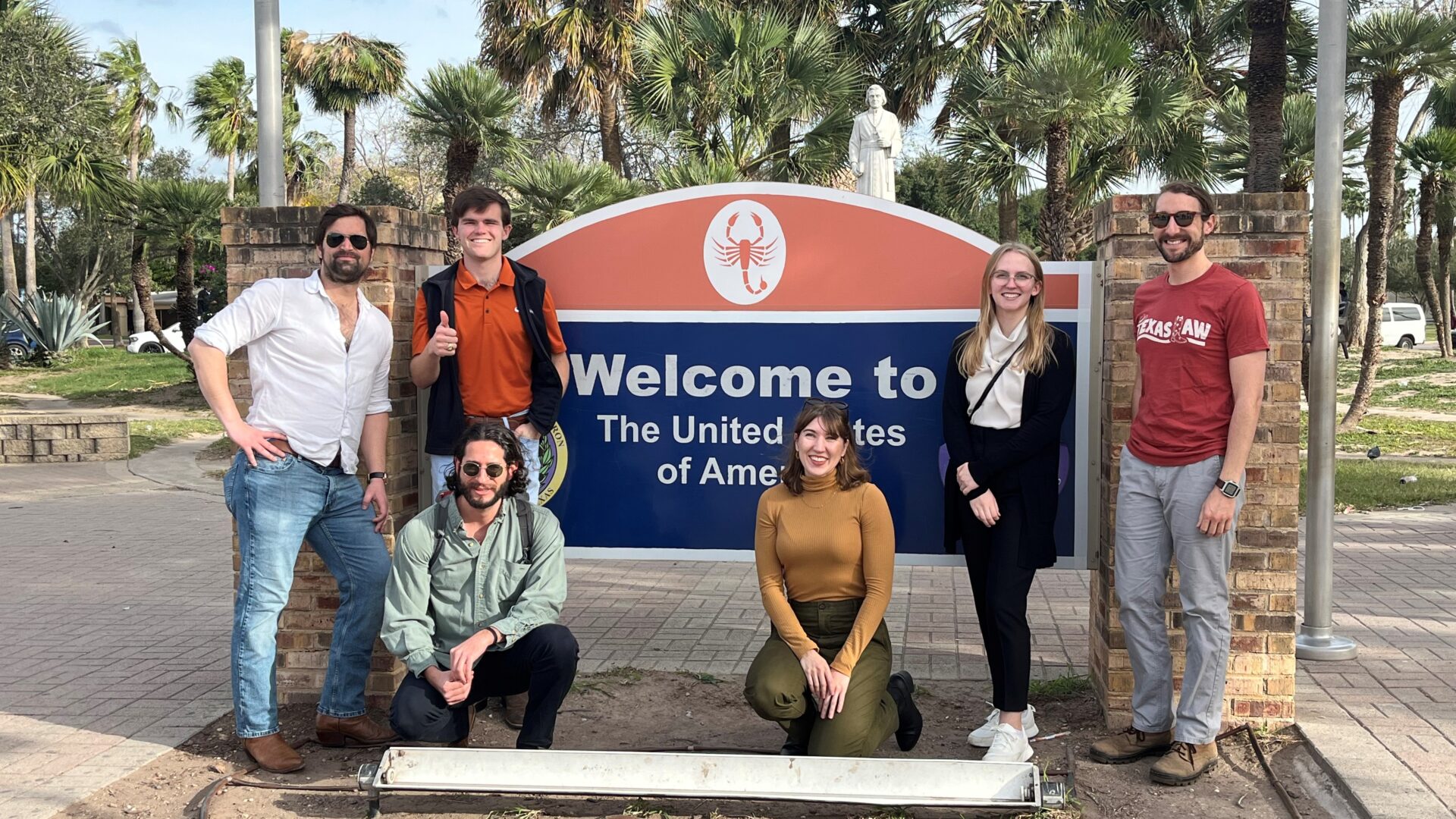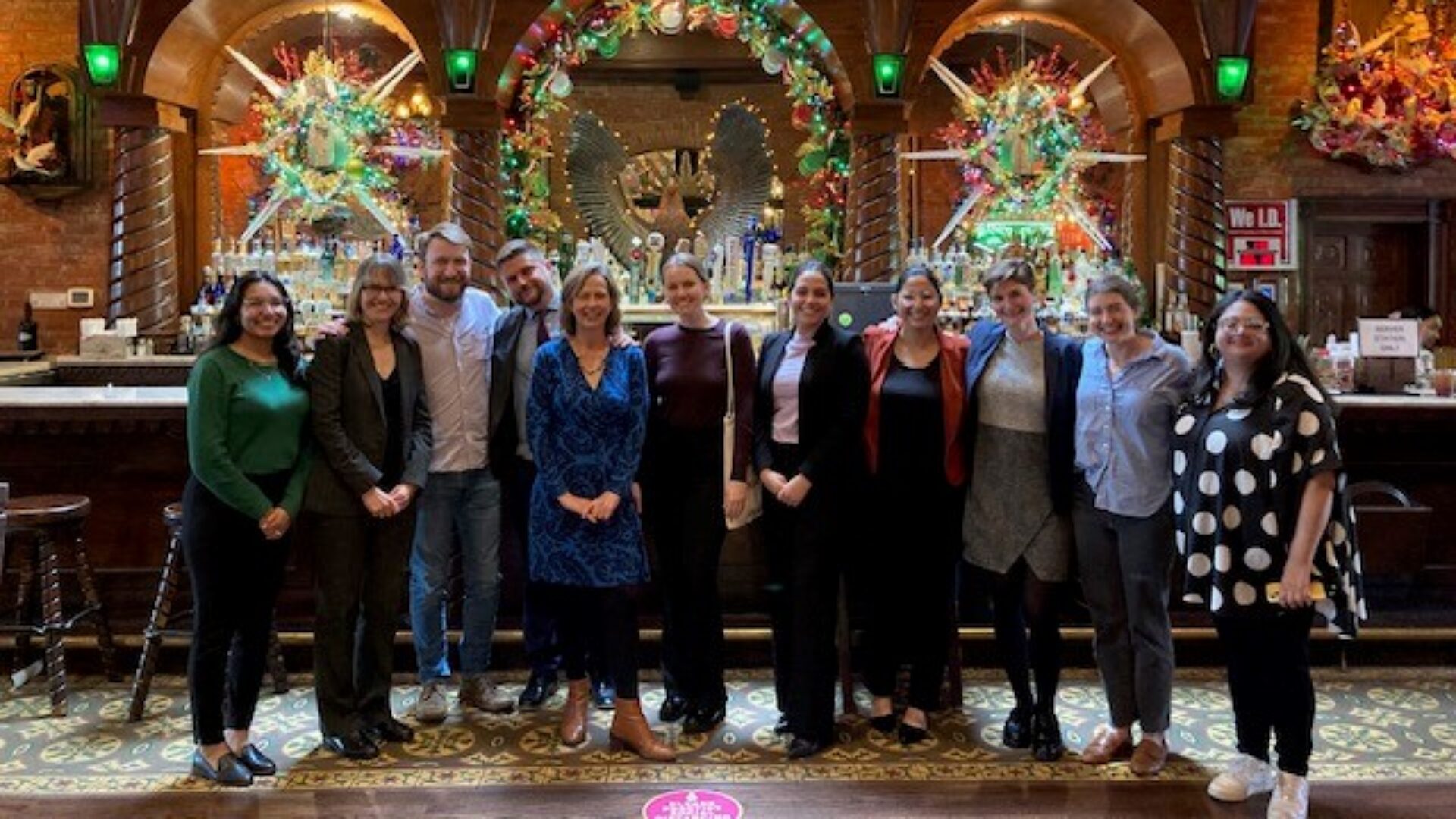
The Mithoff Pro Bono Program provided students three pro bono opportunities during the week before the spring semester began. Two of the projects were led by Texas Law faculty members. Their work with the students was supported by stipends funded with the generous support of the G. Rollie White Trust, which focuses on making health care and educational resources available to Texans, particularly those in rural areas.
One remarkable feature of students’ commitment to these winter break opportunities is their willingness to sacrifice a significant chunk of their vacation. Andrea Marsh, Mithoff Program director, notes, “It’s wonderful to see students use their limited time off from school to perform meaningful pro bono work.”
Counseling Local Asylum-Seekers
Eight students spent the week in Austin working under the supervision of Immigration Clinic faculty members Denise Gilman and Elissa Steglich. “We counseled asylum-seeking families to prepare them for credible fear interviews with an asylum officer,” explains Maddy Bolger ’25, referring to the process of establishing asylum-seekers’ credible fear of persecution or torture—a mandatory step to be considered for asylum and avoid deportation. “To do this, we learned about the situations that caused them to leave their home countries and issues they encountered at the border,” she says. “As someone who hasn’t done much immigration work in the past, I learned how difficult navigating the asylum and immigration process is for people who have just recently gone through some of the worst situations in their lives.”

“My partner, Maryn Rolfson Taylor, and I prepared three women for their credible fear interviews with an asylum officer,” says Araceli Garcia ’24, who also worked with the Immigration Clinic faculty over the week. “These mothers are part of a new process called Family Expedited Removal Management. Under this program, the head of household is given an ankle monitor and a curfew and must check in with U.S. Immigration and Customs Enforcement daily via phone in addition to weekly in-person check-ins with ICE.”
At the end of the week, the group traveled to San Antonio to observe immigration court proceedings and meet with Texas Law Immigration Clinic alumni. The students and faculty worked with asylum-seekers. “One woman we counseled—an attorney in her home country—came to the U.S. with her child escaping intimate partner violence. In addition to preparing her for her credible fear interview, we were also able to accompany her to her first in-person check-in appointment with ICE while we were in San Antonio,” says Garcia. “This experience was incredibly eye-opening and powerful. The harrowing experiences of the FERM families, both in their home countries and as they try to navigate the complicated and often hostile immigration system in the U.S., highlight how critical it is for them to have legal guidance. I’m grateful to the Texas Law Immigration Clinic and Mithoff Pro Bono Program for the opportunity to serve these families.”
Creating a Resource Manual
In addition, five students worked remotely under the supervision of Lecturer Julie Wimmer, who teaches legal writing, to start researching and drafting sections of a resource manual for immigration law practitioners in the Fifth Circuit. This project, which continues through March, represents Wimmer’s collaboration with the nonprofit Texas Immigration Law Council. “We had our initial meeting with Professor Wimmer to learn about the project and to receive our first assignments. Since then, I have reviewed my portion of the immigration manual and looked at secondary sources about asylum law,” says Eliot Schulte ’25. “Public resources for attorneys working at nonprofit organizations are incredibly important, and I am really excited to help create this resource for attorneys in the Fifth Circuit.”
Assisting Immigrants in the Rio Grande Valley

Finally, six students traveled to Harlingen, Texas, to spend the week working with the South Texas Pro Bono Asylum Representation Project, which serves immigrants in the Rio Grande Valley border region. “We received training on immigration law from ProBAR staff and helped noncitizens apply for work permits,” says Will Lavallo ’26. “Twice we went to the Port Isabel detention center, where we observed ProBAR staff give a general orientation to noncitizens who had been detained. While there, I also shadowed a ProBAR attorney in one-on-one interviews. I was allowed to jump in and ask any questions and to help explain certain steps in the process.”
“I am considering working outside a big city. I appreciated seeing what life is like in Harlingen and Brownsville,” says Lavallo. “Most significantly, I won’t forget the trips to the Port Isabel detention center and hearing noncitizens’ harrowing stories firsthand. As a future public interest lawyer, I am a little closer to understanding and empathizing with future clients.”
Shelby Alexander ’26 also noted the impact of attending one-on-one meetings at the detention center: “It was difficult to meet and witness so many people who had faced violence in their home countries and along their journey to the United States now stuck in detention, knowing the statistical likelihood that they will be deported after being churned through a complicated, unjust system,” says Alexander. “However, it was an incredibly inspiring experience to see the relentless efforts of ProBAR staff, who provide comprehensive and compassionate support to so many people in the face of so many challenges.”
“The Mithoff Program is deeply grateful to the faculty members and ProBAR attorneys who made these intensive experiences possible, and to the G. Rollie White Trust for supporting faculty participation in winter break pro bono,” Marsh says.

A version of this story originally appeared on the William Wayne Justice Center for Public Interest Law website.
